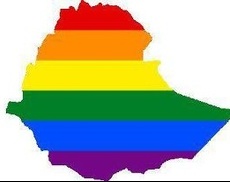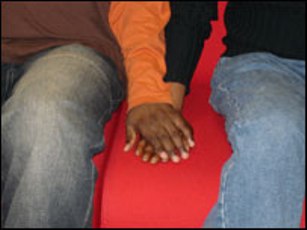Ethiopian LGBTs need help to halt abuses
Colin Stewart is a 45-year journalism veteran living in Southern…

Ethiopia has one of the world’s most restrictive laws governing attempts to protect the rights and health of women, children, LGBT people, the sick and the disabled.
As a result, those people’s rights and health are endangered, and too little is being done to change that.
A law called the Charities and Societies Proclamation (CSP) 621/2009 bans any advocacy and human rights work seeking to end violence against women and children or to promote the rights of people with disabilities, people living with HIV, or other marginalized populations.
Further, grassroots organizations and front-line activists working for the rights and sexual health of lesbian, gay, bisexual, and transgender (LGBT) people in Ethiopia are in danger both because of CSP 621/2009 and because of anti-homosexuality Proclamation No. 414/2004.2012, which provides for prison sentences of up to 15 years for consensual same-sex sexual activity.
 As a result, little progress has been made in suppressing violence against LGBT individuals, which is inflicted both by police and by mobs. LGBT people tend to keep their sexual orientation a secret to avoid arrest and social stigma. LGBT activists fear for their safety, because a number of them have been detained, interrogated and tortured.
As a result, little progress has been made in suppressing violence against LGBT individuals, which is inflicted both by police and by mobs. LGBT people tend to keep their sexual orientation a secret to avoid arrest and social stigma. LGBT activists fear for their safety, because a number of them have been detained, interrogated and tortured.
The U.S. and other countries don’t do enough to push for an end to such violations. Although they know that change is needed, they don’t make it a priority. Every year the U.S. State Department copies and pastes the same two paragraphs in its Ethiopian Human Rights Report under the heading “Societal Abuses, Discrimination, and Acts of Violence Based on Sexual Orientation and Gender Identity.” This is the wording from the newly released 2012 report:
Consensual same-sex sexual activity is illegal and punishable by imprisonment under the law. There were some reports of violence against lesbian, gay, bisexual, and transgender (LGBT) individuals; reporting was limited due to fear of retribution, discrimination, or stigmatization. Persons did not identify themselves as LGBT persons due to severe societal stigma and the illegality of consensual same-sex sexual activity. Activists in the LGBT community stated they were followed and at times feared for their safety. There were periodic detainments of some in the LGBT community, combined with interrogation and alleged physical abuse.
The AIDS Resource Center in Addis Ababa reported the majority of self-identified gay and lesbian callers, the majority of whom were male, requested assistance in changing their behavior to avoid discrimination. Many gay men reported anxiety, confusion, identity crises, depression, self-ostracism, religious conflict, and suicide attempts.

A first step toward would be for the U.S. embassy and U.S. human rights missions in the country to work closely with local LGBT activists and community leaders to flesh out the 2013 report. It’s important to record the specifics about the degrading and so-far-unreported human rights violations that Ethiopian people experience on the basis of their sexual identity and gender orientation.
A similar shortcoming applies to the U.K.’s 2012 Human Rights and Democracy Report, which mentions nothing about the human rights abuses targeted at LGBT people in Ethiopia.
Along the same lines, a conference of African Union health ministers is being held this week in Addis Ababa to discuss ways to combat the continent’s diseases. The pressing issue of LGBT people and HIV in Africa is not in their agenda.
It’s not because the foreign governments don’t know what’s going on. HIV activists and LGBT human right workers continually report incidents of social justice and human rights abuses to the U.S. State Department’s Bureau of Democracy, Human Rights and Labor and to the British Foreign and Commonwealth Office. The hope is that international organizations such as those will investigate and work with the Ethiopian government to address the issue.
Related articles
- World Bank eyes how anti-LGBT stigma boosts HIV, poverty (76crimes.com)
- Ethiopia protest against human rights crackdown (76crimes.com)
- Serious Human Rights Abuses Directed at LGBT Populations in Every Region (hrexach.wordpress.com)
- Ethiopia: Online death threats against LGBT people (76crimes.com)
- How U.S. taxes are killing LGBT people (76crimes.com)


